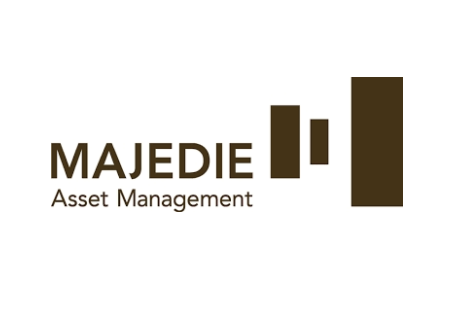Majedie fails to match benchmarks, discount widens – Majedie Investments says that, for the year ended 30 September 2018, its NAV return was 2.7% and the return to shareholders was 2.1%. By contrast, the All Share Index and MSCI World Index (in sterling terms) rose by 5.9% and 12.9% respectively. The dividend has been increased from 9.75p to 11.0p. The redemption of the 2020 9.5% Debentures in December 2017 took 0.6% off the NAV.
The value of the trust’s stake in Majedie Asset Management fell from £61.5m to £58.7m. Due to the current market and political volatility the directors have decided to include a discount in the MAM valuation to reflect fair value at 30 September 2018. The investment in the MAM Tortoise Fund, an absolute return fund, acted as a drag on returns. The chairman says it was too defensively positioned in the past year but points out that, If stock markets roll over after a bull run of ten years, the MAM Tortoise should recoup its recent losses and provide some downside protection. [QD comment: as you’ll see below, the return on the MAM Tortoise Fund was -6.6% over the year – that’s a big drop for an absolute return fund, which might suggest that the fund wasn’t positioned defensively enough!]. The third factor holding back returns was the portfolio’s bias to the UK – since the Brexit vote the UK stock market has materially underperformed global markets.
The board says it is concerned that since the year end, the discount has widened but says volatile markets have led to investment company discounts widening across the sector.
Extracts from the manager’s report
- In the year to 30 September 2018, the MAM UK Equity Segregated Portfolio returned 3.0% net of fees, which is an underperformance of 2.9% against its benchmark. At a sector level, the largest positive contributors to performance over the year were Food Retail, Oil (both overweight) and Tobacco (underweight); detractors were General Retail, Gold Mining and Fixed Line Telecoms (all overweight). Positive stock contributors to performance over the year were British American Tobacco (underweight), Tesco and BP (both overweight); detractors were Barrick Gold, Saga (both overweight) and AstraZeneca (not held).
- In the year to 30 September 2018 the MAM UK Income Fund returned 9.3% net of fees which represents an outperformance against its benchmark of 3.4%. At a sector level, the largest positive contributors to performance over the year were Oil, Media (both overweight) and Tobacco (underweight); detractors were Pharmaceuticals, Mining (both underweight) and Mobile Telecommunications (overweight). Positive stock contributors to performance over the year included Pearson, Genel Energy (both overweight) and British American Tobacco (not held); detractors were Ophir Energy, Kenmare Resources and Centrica (all overweight).
- In the year to 30 September 2018, the MAM Global Equity Fund and MAM Global Focus fund returned 12.1% and 11.4% net of fees respectively, which represents an underperformance of 0.8% and 1.5% respectively. At a sector level, the largest positive contributors to performance over the year for MAM Global Equity Fund were Consumer Staples (underweight), Oil and Healthcare (both overweight); detractors were Information Technology, Consumer Discretionary (both overweight) and Industrials (underweight). Positive stock contributors to MAM Global Equity Fund performance over the year were Tullow Oil, Kering and Mosaic (all overweight); detractors were KPN, Sohu.com and Barrick Gold (all overweight).
- For the MAM Global Focus Fund, the largest positive contributors to performance at a sector level were Consumer Staples, Oil (both overweight) and Financials (underweight); detractors were Information Technology (overweight), Consumer Discretionary and Industrials (both underweight). Positive stock contributors to MAM Global Focus Fund performance over the year were Softbank, Royal Dutch Shell and Kao (all overweight); detractors were Apple, Microsoft (both not held) and Amazon.com (underweight).
- The MAM US Equity Fund returned 15.1% net of fees which represents an underperformance of 5.5%. At a sector level, the largest positive contributors to performance over the year for MAM US Equity Fund were Industrials, Consumer Staples (both underweight) and Telecoms (overweight); detractors were Information Technology, Financials and Consumer Discretionary (all overweight). Positive stock contributors to performance over the year were Anthem, TJX (both overweight) and General Electric (not held); detractors were Amazon.com, Apple (both underweight) and Barrick Gold (overweight).
-
The MAM Tortoise Fund returned -6.6% net of fees in the year to 30 September 2018. At a sector level the largest positive contributors to performance were Consumer Staples, Energy and Healthcare (all long); detractors were Industrials, Consumer Discretionary (both short) and Materials (long). Positive stock contributors to performance over the year were Tesco, J Sainsbury and Mosaic (all longs); detractors were Gold Fields, Telecom Italia and Barrick Gold (all longs).
